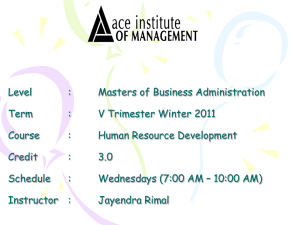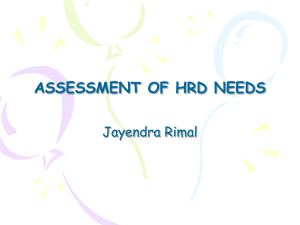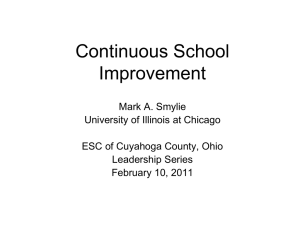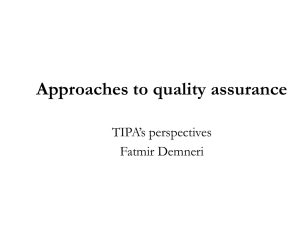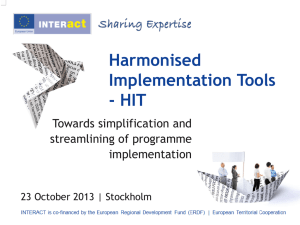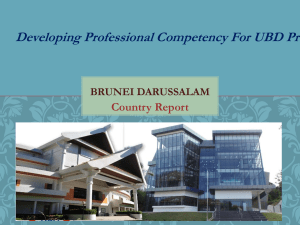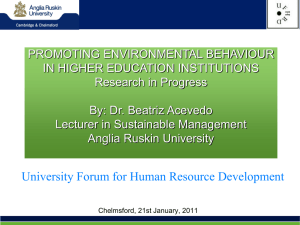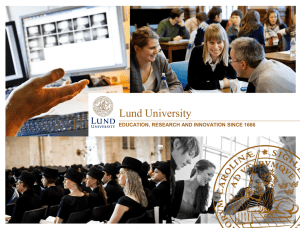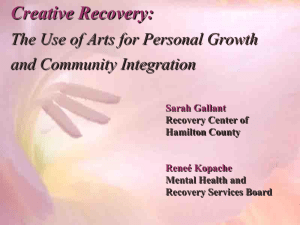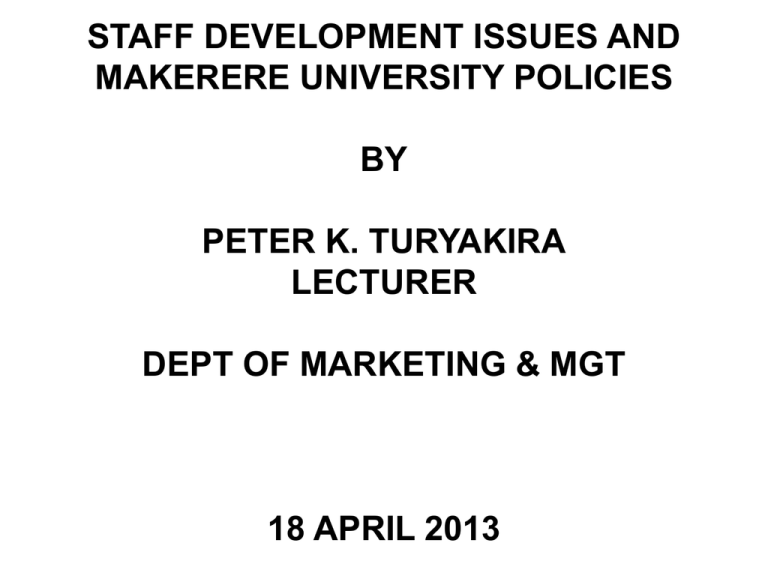
STAFF DEVELOPMENT ISSUES AND
MAKERERE UNIVERSITY POLICIES
BY
PETER K. TURYAKIRA
LECTURER
DEPT OF MARKETING & MGT
18 APRIL 2013
Introduction
• Staff development (SD)- a process whereby employees
of a firm enhance their knowledge and skills in directions
that are advantageous to their role in the organisation.
• Essentially, SD is an on-going process of education,
training, learning and support activities to help people
grow within the organisations in which they are
employed.
• It is a joint, on-going effort on the part of an employee
and the organization for which he works to upgrade his
knowledge, skills, and abilities.
Introduction Con’t
• SD requires a balance between an individual's career
needs and goals; and the organization's need to get
work done.
• A significant component of SD is to facilitate change on a
personal, professional and institutional level.
• An emphasis on lifelong learning, personal growth and
fulfilment underlines the importance of sustained
development.
Purpose of Staff Development
• The primary purpose of academic staff development is
to expand the employees’ awareness of the various
tasks they must undertake to contribute to the effective
education of students and the accomplishment of the
University’s objectives.
• Broadly, these tasks include those associated with
teaching and learning, research and scholarship and
professional updating. In a University, learning and
teaching activities are central.
Purpose of Staff Development Con’t
Hence, staff development is intended to:
• Facilitate personal and professional development,
enabling individuals and groups to achieve their full
potential and contribute to the provision of excellent
teaching and research in the University.
• Enable employees to continually improve
competencies, skills, knowledge and performance to
enhance job satisfaction, career potential, and to
maximize their contribution to the School’s strategic
directions.
Benefits of staff development
No University can be considered a good employer if it does
not strive to maximise individual potential of every
member of staff. Benefits include:
• Attracting and retaining excellent staff
• Increased job satisfaction and morale among employees
• Supporting career planning and development
• Increased capacity to adopt new technologies and
methods, and being up-to-date with industry trends and
developments
• Reduced employee turnover
• A more highly-skilled workforce can accomplish more as
they gain experience and knowledge.
Benefits of staff development Con’t
• Increasing their own skills’ assets and improving their
own intellectual capital and expertise
• Enhanced University image.
Makerere University HRD Policy
The University is committed to:
• Promoting a culture of learning that nurtures and
encourages continuous learning in the workplace;
• Ensuring that human resources are trained and
developed in compliance with government
regulatory requirements and as a strategy for skills’
development and employment equity; and
• Use education and training in motivating individuals
into excelling while fulfilling their potential talents for
the mutual benefit of the University and self.
Objectives of the HRD Policy
The objectives of the policy are to:
• Uphold the vision and mission, as well as foster values
and commitments of the University.
• Ensure the integration and uniformity of all human
resources development initiatives, practices and
processes.
• Enhance employee job satisfaction, employability and
advancement.
• Make development opportunities accessible and
available to all employees.
• Ensure a high level of legitimacy among all stakeholders.
• Ensure rational and optimal use of resources available
for human resources development.
Principles of the HRD Policy
•
•
•
•
•
•
The following principles shall guide this Policy:
Demand‐driven;
Value for money;
Professionalism;
Transparency; and
Equity and equality.
Provisions of the HRD Policy
• An employee shall be entitled to attend academic,
professional, and/ or work place skills training
programmes and shall be allowed to attend/ take up
development opportunities, wherever possible.
• Regulations shall provide the context and procedures for
the different types of training in line with the University’s
Mission Statement.
• The identification, monitoring and provision of human
resources development initiatives shall be based upon a
framework for thorough training needs assessment using
professionally recognized methods that are sensitive to
women and men staff needs.
• The development needs of the University shall always
Provisions of the HRD Policy Con’t
• Each employee shall obtain permission to attend all and
any type of training programme of any duration,
irrespective of the source of funding; and, thereafter,
maintain contact with the University Administration, during
and after the training period.
• Beneficiaries of human resources development initiatives
shall share the acquired knowledge with the University
community within the framework as shall be stipulated in
the Regulations from time to time.
• The opportunities and funds available for Human Resources
Development programmes shall be approved by the
University Council and communicated periodically to
stakeholders.
Provisions of the HRD Policy Con’t
• This Policy shall be implemented in line with the
accompanying Regulations as well as relevant
provisions in the University’s policies and regulations as
contained in the Human Resources Manual and other
documents.
• The University’s Human Resources Development
priorities and the Regulations shall be reviewed, when
need arises, through a consultative process with all
stakeholders.
Eligibility for Training
Academic Training Programmes
• An employee, confirmed in the University Service, shall
be eligible to go for further training leading to academic
qualification, subject to fulfilling the provisions of these
guidelines.
• Except in special circumstances as determined by the
Committee, an employee not yet confirmed in the
University Service shall ONLY be eligible to go for further
training after serving the University for at least one
academic year; and where:
• The recommending Department/ Unit lacks sufficiently
trained employees in a specified area of expertise;
Academic Training Programmes Con’t
• Efforts to recruit suitably trained employees have proved
futile;
• An employee has secured a fully funded scholarship
from a source outside the University; or
• An employee is admitted to Makerere University and
he/she continues to cover up to 20% of the normal
work load, while studying.
• An employee in the first two categories above shall be
permitted to go for training where the workload
distribution in the Department/Unit can be managed
without recruiting additional employees.
• .
Academic Training Programmes Con’t
• An employee on contract outside the training grades is
not eligible for sponsorship to training that leads to
academic qualifications or lasts for more than one
month.
• An employee who obtains a higher qualification after
training under provisions above will first resume service
under the original terms of appointment before applying
for appointment on new terms, promotion or confirmation
in service.
• Except in special circumstances as determined by the
Committee, an employee who successfully completes a
training programme lasting at least nine months shall be
eligible for permission, and sponsorship where possible,
to undertake another programme after serving the
University for the bonded period as stipulated in the
training agreement.
Professional and Workplace Skills Training
Programmes
All employees shall attend these programmes in line with:
• The identified training needs, personal development
plans and Institutional succession framework;
• Recommendations from the Colleges/Departments/Units
in collaboration with the Directorate of Human
Resources to address particular and/or
profession‐specific skills’ or performance gaps;
• Senior Academic and Administrative employees
appointed on contract in the M3 scale and above; as well
as all employees appointed on contract after reaching
the official retirement age, shall ONLY be eligible for this
type of training during their tenure in office and not
programmes leading to academic qualifications.
Factors to consider in identifying and/or
approving employees to be trained
a) Age of the applicant;
b) Sex of the applicant;
c) Availability and reliability of full or partial funding for
training in a given period;
d) The University’s Human Resources Development
priorities;
e) Relative lack of expertise/trained employees in a given
area of specialty in the Department/Unit;
f) The workload among employees in a Department
vis‐à‐vis the number of employees already on study
programmes;
Factors to consider in identifying and/or
approving employees to be trained
g) An employee’s career development plan;
h) Performance management reports about the applicant;
i) Purpose of the training to be undertaken mutually agreed
upon by the individual employee, the Department and
the DHR; including but not limited to: career
development, capacity building, strategic training for
succession line up, gender balance or form of affirmative
action (not necessarily in that order of priority).
j) The projected effect of the training on the individual
employee’s performance at work.
Conclusion
• As careers develop, they reflect and influence personal
development and can be facilitated by a variety of
processes, role models and forms of mentorship.
• Engagement in staff/self development should be seen as
an excellent investment for moving towards career goals.
Staff who seek opportunities and adapt to change should
achieve direct career-related benefits.
Thank you!

